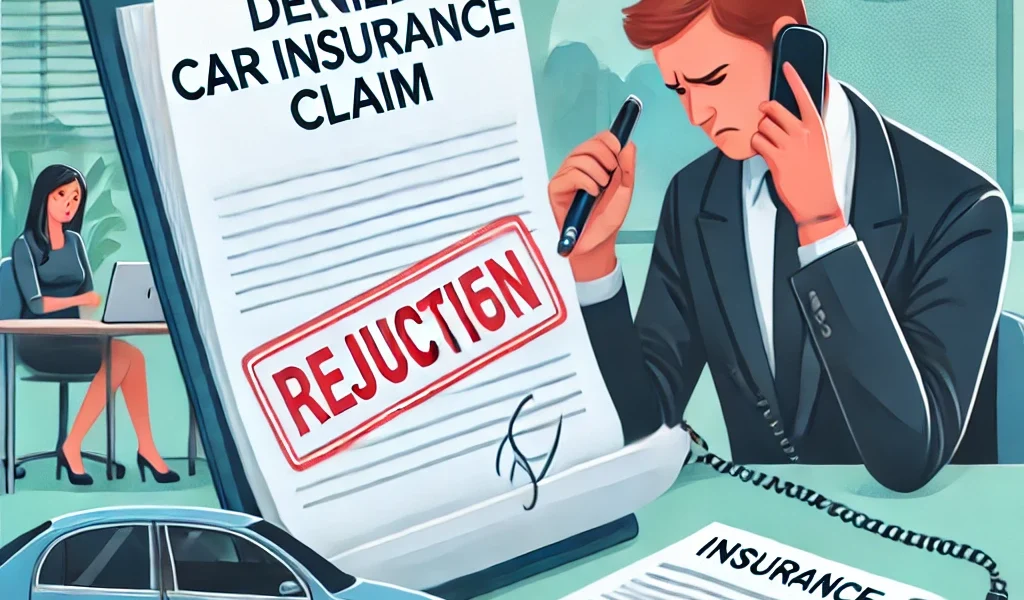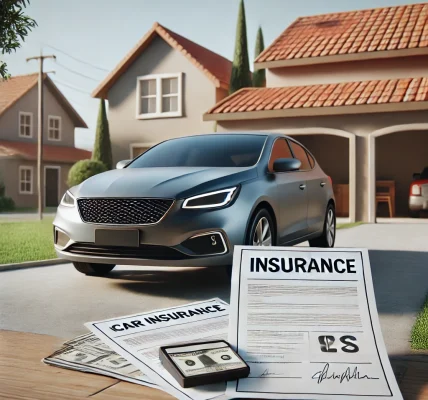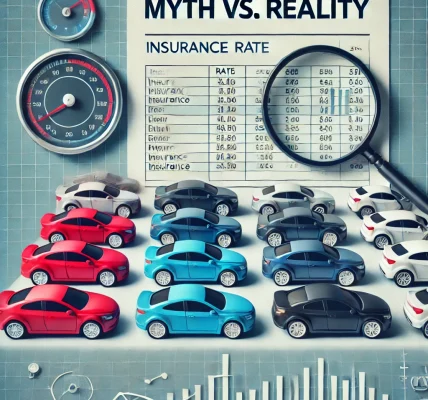Car insurance provides financial protection in case of an accident, theft, or other unforeseen events. However, there are instances where insurance companies deny claims, leaving policyholders frustrated and confused. If your car insurance claim has been denied, it is important to understand the reasons behind the decision and take the necessary steps to appeal it effectively.
In this guide, we will discuss why insurance claims get denied, what you should do if your claim is rejected, and how to appeal the decision to get the best possible outcome.
Common Reasons Why Car Insurance Claims Get Denied
Before filing an appeal, it’s crucial to understand why your claim may have been denied. Some of the most common reasons include:
1. Lack of Coverage
- Your policy may not cover the specific type of damage you’re claiming.
- Some claims, such as mechanical breakdowns, are typically excluded from standard policies.
2. Policy Lapses
- If your insurance policy has expired due to non-payment, any claims filed after the lapse will be denied.
3. Late Claim Filing
- Most insurance companies have strict deadlines for filing claims. If you file too late, your claim could be rejected.
4. Misrepresentation or Fraud
- If incorrect information was provided at the time of filing, the insurer may reject the claim.
- This includes providing false details about the accident or failing to disclose important facts.
5. Violation of Policy Terms
- If the accident occurred due to reckless driving, DUI, or other policy violations, the claim may be denied.
- Using your car for commercial purposes when you only have personal insurance could also lead to denial.
6. Insufficient Documentation
- Missing evidence such as police reports, photos, or witness statements can result in claim denial.
What to Do If Your Car Insurance Claim Is Denied
Step 1: Review the Denial Letter Carefully
- Your insurer is required to provide a written explanation for claim denial.
- Look for details regarding the specific reasons for rejection and any missing documentation.
Step 2: Check Your Insurance Policy
- Review your insurance policy to ensure that the denial aligns with the coverage you have.
- Pay attention to exclusions, coverage limits, and claim filing deadlines.
Step 3: Gather Additional Evidence
- If your claim was denied due to insufficient documentation, collect additional proof such as:
- Photos or videos of the accident
- Police reports
- Witness statements
- Repair estimates
- Medical records (if applicable)
Step 4: Contact Your Insurance Provider
- Call your insurance company’s claims department to discuss the denial.
- Ask for clarification on what additional information is needed to reconsider the claim.
Step 5: File an Appeal
If you believe the claim was wrongfully denied, you have the right to appeal. Here’s how:
How to Appeal a Denied Car Insurance Claim
Step 1: Write a Formal Appeal Letter
Your appeal letter should include:
- Your policy number and claim details
- A clear explanation of why you believe the denial was incorrect
- Any new evidence supporting your claim
- A request for reconsideration
Step 2: Include Supporting Documents
Attach all relevant documents, such as:
- Policy copy
- Accident reports
- Photos and videos
- Witness statements
- Additional repair estimates
Step 3: Submit Your Appeal
- Send your appeal via certified mail or email to ensure it is received.
- Keep copies of all correspondence with your insurer.
Step 4: Follow Up
- Check with the insurance company regularly to track the status of your appeal.
- If needed, escalate the matter to a supervisor or manager within the insurance company.
What If Your Appeal Is Still Denied?
If your appeal is unsuccessful, you have additional options:
1. Contact Your State’s Insurance Regulator
- Each state has an insurance regulatory authority that can investigate unfair claim denials.
- File a complaint with your state’s insurance department.
2. Seek Legal Assistance
- If you believe your insurer is acting in bad faith, consult a lawyer who specializes in insurance disputes.
- Legal action should be a last resort, but it can be effective in cases of wrongful denials.
3. Consider Third-Party Mediation or Arbitration
- Some insurance policies allow for mediation or arbitration as an alternative to lawsuits.
- This process involves a neutral third party helping to resolve the dispute fairly.
Final Thoughts
Having your car insurance claim denied can be frustrating, but you don’t have to accept the decision without challenge. By understanding the reasons behind the denial, gathering strong evidence, and following the correct appeal procedures, you can increase your chances of having your claim approved.
If your insurer remains uncooperative, seeking assistance from regulatory agencies or legal professionals can help you get the compensation you deserve.
🚗📑 Take action today and make sure your insurance company treats your claim fairly!




